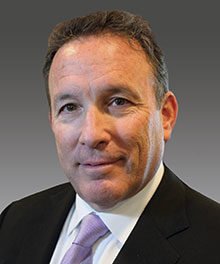Private Thoughts on Alibaba's Public Offering

The IPO of Alibaba Group last Friday was the biggest business news of the day, the week, the month and maybe the year. Guessing at the offering price; calculating the margin by which it would out-capitalize Visa and Facebook, then the largest IPOs on record; and analyzing Alibaba’s enigmatic CEO, Jack Ma, constituted a virtual feeding frenzy.
Drew Bernstein, who is co-managing partner of Marcum Bernstein & Pinchuk, our China affiliate, had some thoughts on Alibaba’s public debut. Drew has deep experience in the China market and understands the nuances and vagaries of Chinese public companies like few others do or can. He penned those thoughts in an op ed for Forbes, that posted 24 hours before the IPO.
Drew’s a very smart guy. I thought it would be worth sharing what he had to say. Enjoy:
Betting on Jack Ma: Three Keys to Alibaba’s Success
Forbes.com
Markets 9/18/2014 @ 7:12 AM
The Alibaba Group IPO has all of Wall Street enthralled as the company hits the New York Stock Exchange. Little wonder, as this is a company of superlatives.
The offering is set to be the largest tech IPO ever with more than $20 billion of stock for sale. Six lead underwriters, 160 bankers, over 300 institutional salespeople, and thousands of brokers are working the deal. Alibaba is the largest online merchant in the world, with $240 billion in merchandise sold in 2013.
More than the company, this is an opportunity to invest in Jack Ma, who has proven himself to be the most resourceful and dynamic CEO in all of China. Beyond Alibaba he also founded China’s dominant online payment service, Alipay, and runs Yu’e Bao, a provider of wealth management products that are sucking consumer savings out of China’s largest banks.
Jack Ma is often favorably compared to the likes of Jeff Bezos, Steve Jobs, and Warren Buffett, but if Alibaba is going to be successful as a U.S.-listed company he has to convince investors he will do as well for them as he has done for himself.
That makes him the biggest selling point and the biggest risk to Alibaba’s story.This is not Alibaba’s first trip to the IPO rodeo. In 2007, its B2B site alibaba.com went public on the Hong Kong Stock exchange at the very peak of the market. Five years later, Jack Ma took it private following a string of disappointing earnings and a trading scandal that saw the exit of its top two officers.
The U.S.-listed Alibaba will include the company’s fast-growing B2C platforms, Taobao and Tmall, but carves out the other jewels of Alibaba Group’s empire, Alipay and Yu’e Bao. Both of these entities will remain private companies owned by Ma and other select investors. Given how closely intertwined the operations of these companies are, the potential for conflicts of interest is enormous.
And with a governance structure that places all decisions in the hands of 30 senior executives, Ma will essentially call the shots.
In the past decade, I have worked with more than 100 Chinese companies in the capacity of auditor, provider of financial due diligence to institutional investors, and as a board member. During that time I’ve seen many companies that had blazing fast growth, but ultimately disappointed public market investors.
So if I had five minutes with Jack Ma, here are the three things I’d encourage him to focus on to make his Chinese e-commerce giant a stock success on the global stage.
Hire great people.
Alibaba has an extremely sophisticated executive vice chairman, Joseph Tsai, overseeing the IPO process. But they are going to need deep teams in accounting, internal audit, and risk management in order to avoid major errors given their rate of growth.
Too often Chinese companies are unwilling to pay for top talent in areas that don’t directly generate revenue. During the IPO process these companies have a legion of bankers and advisors to polish the story. But then after a few quarters the wheels fall off.
Alibaba has already stubbed its toe by discovering accounting irregularities at a Hong Kong film production company they acquired in June. They can’t afford additional mistakes.
Over-disclose everything.
As a Chinese company every step Alibaba takes will be potentially subject to misunderstanding. China has a more opaque and volatile business environment compared with the West. Short-sellers will seize on any inconsistencies to try to knock the company down.
The way to overcome that is to provide extremely clear explanations and very detailed data that answer investors’ concerns before they arise. Of particular concern will be to show how transactions with private entities within the Alibaba Group are truly arms-length and benefit public investors.
Stick to your strategic focus.
It is clear that Alibaba is a hugely ambitious company and that Ma’s vision goes beyond e-commerce to building a whole Internet ecosystem on par with what Google, Facebook and Amazon.com are attempting.
Already in 2014 Alibaba has spent over $4 billion snatching up stakes in online drug services, print media, supermarkets, department stores, and logistics. Post-IPO they will have a cash war chest and public currency to spend tens of billions of dollars on deals.
But as audacious as Jack Ma’s vision is, he will need to tie each of these deals into an overall strategy that can be articulated to investors. As a public company you probably shouldn’t be acquiring a soccer team. Save the silly stuff for your private holdings.
In a letter that accompanied the latest IPO prospectus, Jack Ma told investors that he will put “customers first, employees second, and shareholders third.” He also makes it clear that the company will ignore short-term profits and focus on building long-term value.
That kind of philosophy works as long as focusing on the first two constituencies makes the third happy. Ma’s track record of creating valuable businesses is among the most impressive in the world. But now that he’ll have a public report card, making sure his new shareholders participate in that wealth creation is imperative.
Drew Bernstein is co-managing partner of Marcum Bernstein & Pinchuk and has worked with Chinese companies in a variety of roles including audit, due diligence and consulting work.
On a separate note, for those of you who observe the Jewish holiday of Rosh Hashanah, may you and your families enjoy a happy, healthy and prosperous New Year.
